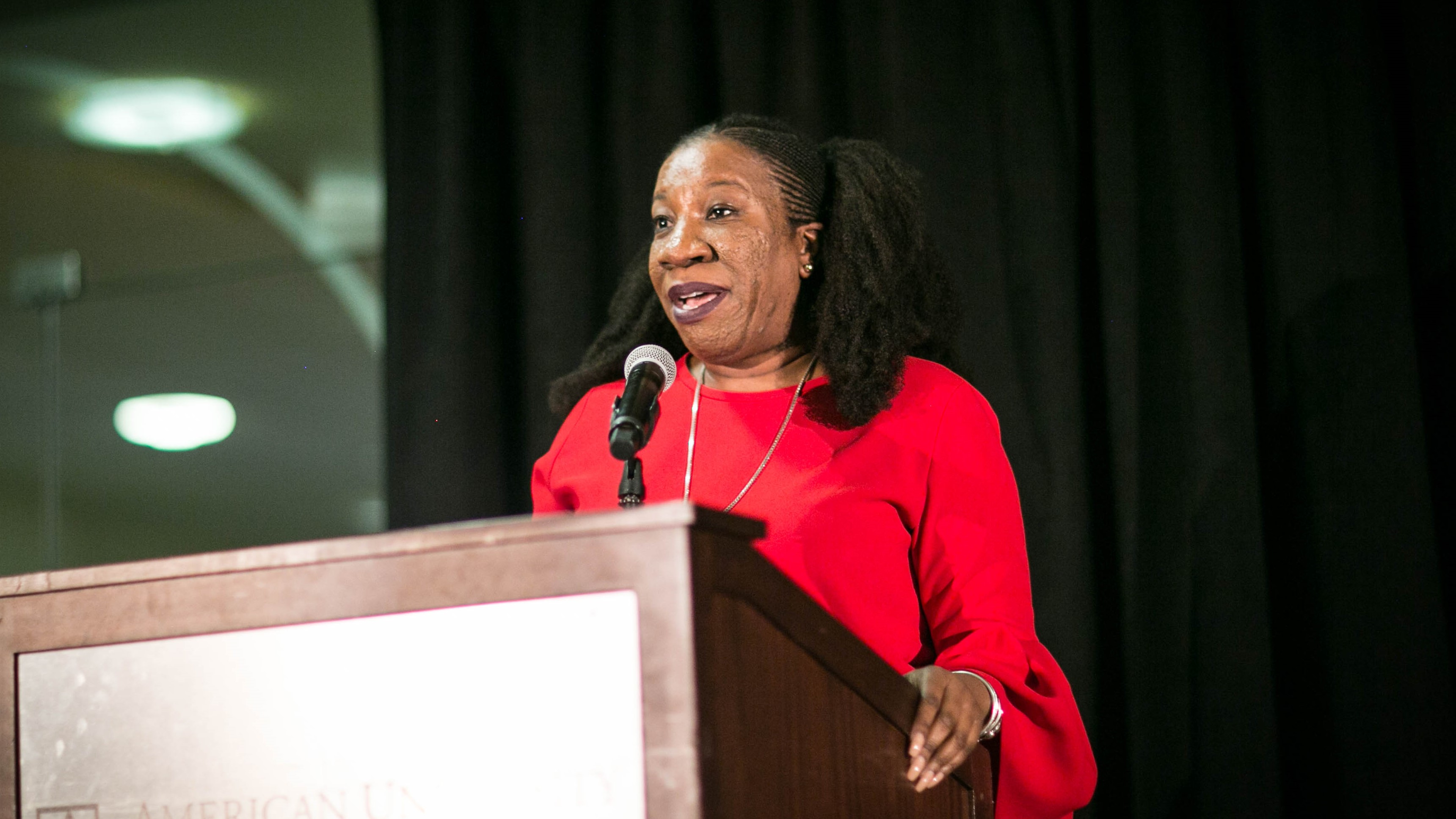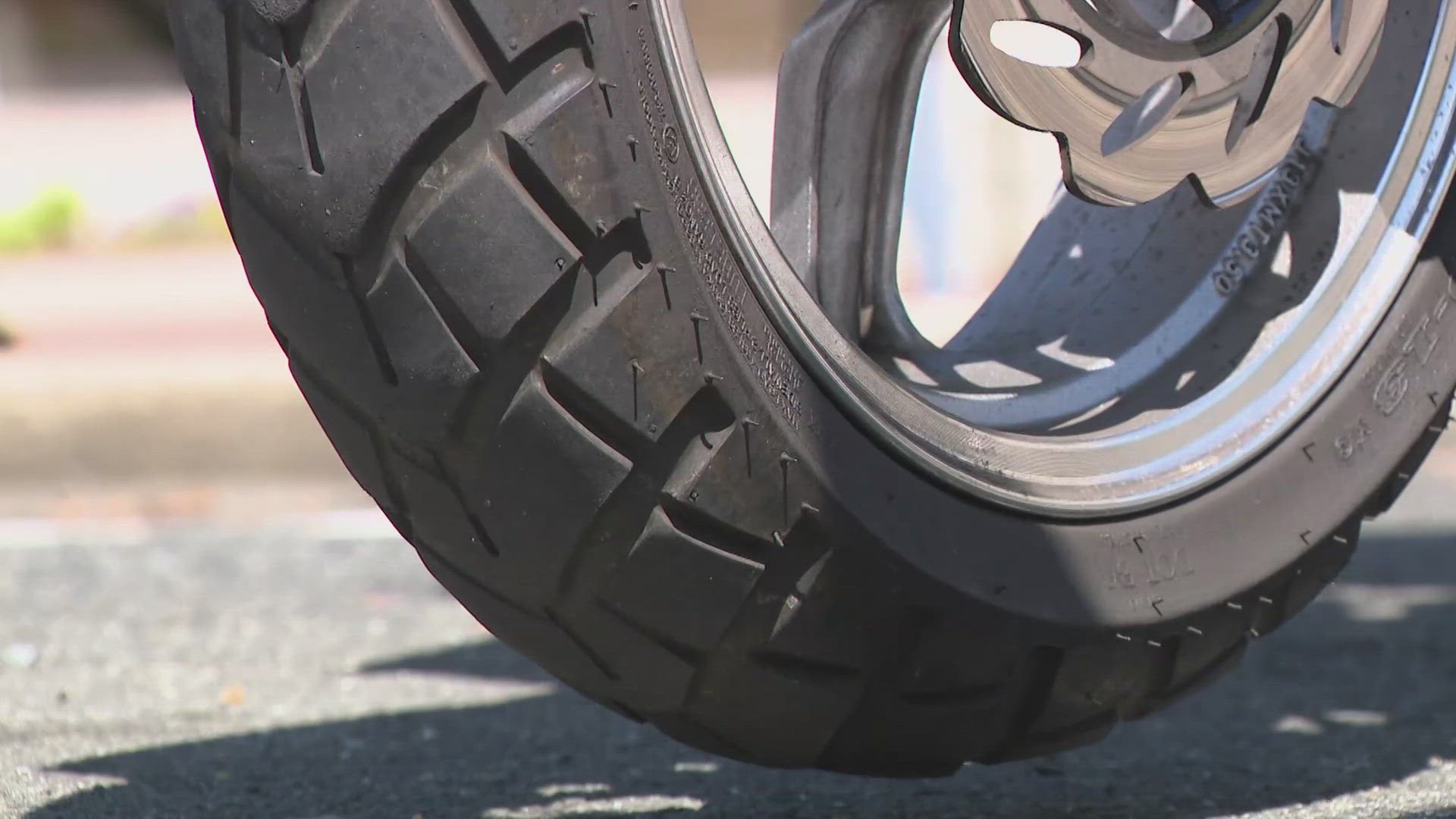Students at American University were given the chance to hear from Tarana Burke, the founder of the #MeToo movement on campus Saturday night. And, for many students attending, the movement has personal meaning to them.
“I think the #MeToo movement is something really powerful to me personally as a survivor, but also as someone who has worked on campus, to teach first-year students about consent and sexual assault prevention,” said Valentina Fernández, a junior at the university, who was attending the event.
The national conversation has been a hotly discussed topic in recent years, including in the DC area. In 2016, George Washington University released a report finding that there were 25 reported cases of rape that year, the highest number in years since they changed their definition of the crime. In 2017, a lawsuit against Howard University for its handling of a campus sex assault case expanded to six female complainants.
“You see the stats, but it never hits close to you until you see it in your timeline. Seeing the people you know sharing their stories that was really shifting my mind a little bit,” Fernández said.
Students cited the power of seeing #MeToo stories online, which began after actress Alyssa Milano used Burke’s phrase “me too” as a rallying cry, asking people who have experienced sexual harassment or violence to share their stories.
One student also attending the event, senior Yamillet Payano, said that the movement, “means a lot as a woman who is also a minority.” She said coming from a Caribbean family, these conversations can often feel taboo, but the #MeToo movement has been “empowering.”
“It’s empowering so many young women across the world,” Payano said.
While students said they found the movement empowering, some expressed concern at the same time that seeing so many stories of sexual violence may be re-traumatizing for survivors.
Anying Guo, a junior, was one of the student organizers for the event. She told WUSA9 that she believes that #MeToo is a “necessary coalition-building movement,” but said she, personally, decided not to share her own #MeToo story opening.
“I didn’t want to rehash any trauma for myself, so I didn’t allow myself to have that moment,” Guo said.
She also said at first she felt as though the movement wasn’t inclusive until she did her research and discovered the #MeToo movement came before Alyssa Milano’s tweet and began with Tarana Burke. And that’s part of why the American University’s Women’s Initiative decided to bring her on campus to speak and to be awarded for her excellence in activism.
“We wanted to give her the acknowledgement she deserves in terms of the movement,” Guo said.
Tarana Burke first started the movement to help young girls of color who survived sexual violence. During her speech at the university, Burke talked about being an “organizer,” first starting out by organizing movements on her college campus and with an organization called 21st Century Youth Leadership before creating larger movements, such as the #MeToo movement.
#OffScriptOn9: What can we expect from the #MeToo movement?
In an interview prior to the event, Burke said that, moving forward, she hopes to shift the national conversation away from “about calling people out and taking down powerful men,” where the focus would be on the perpetuator, but back towards survivors.
“At the end of the day, although our work has always centered black and brown girls, it’s about supporting survivors,” Burke said.
On college campuses, Burke said that college and universities should focus on shifting the culture on campus before implementing policies, a sentiment echoed by students such as Payano.
Payano said that the movement allows people to be “re-educated” on sexual activity and consent. She mentioned Greek life and partying as a unique staple of college life, but also a place where these conversations matter.
“It’s important to know that when you go to these frat parties, what’s not okay and if you’re being disrespected,” Payano said
Burke told WUSA9 that, for student survivors, she hopes this movement has made them feel supported, “and feel like they have that space they didn’t have before to talk about these things and bring it up on campus and bring it up in the classrooms and not feel the shame about it.”
And for Payano, speaking with WUSA9 before Burke’s speech, the movement has done that. “It definitely helped me learn that I’m not the only one and that there were so many other women across the world who went through the same thing,” Payano said.


